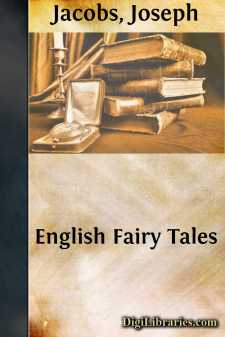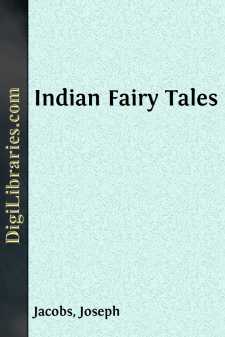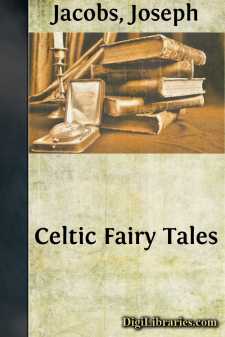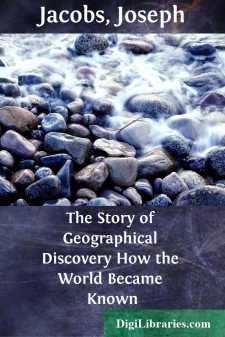Categories
- Antiques & Collectibles 13
- Architecture 36
- Art 48
- Bibles 22
- Biography & Autobiography 813
- Body, Mind & Spirit 142
- Business & Economics 28
- Children's Books 17
- Children's Fiction 14
- Computers 4
- Cooking 94
- Crafts & Hobbies 4
- Drama 346
- Education 46
- Family & Relationships 57
- Fiction 11829
- Games 19
- Gardening 17
- Health & Fitness 34
- History 1377
- House & Home 1
- Humor 147
- Juvenile Fiction 1873
- Juvenile Nonfiction 202
- Language Arts & Disciplines 88
- Law 16
- Literary Collections 686
- Literary Criticism 179
- Mathematics 13
- Medical 41
- Music 40
- Nature 179
- Non-Classifiable 1768
- Performing Arts 7
- Periodicals 1453
- Philosophy 64
- Photography 2
- Poetry 896
- Political Science 203
- Psychology 42
- Reference 154
- Religion 513
- Science 126
- Self-Help 84
- Social Science 81
- Sports & Recreation 34
- Study Aids 3
- Technology & Engineering 59
- Transportation 23
- Travel 463
- True Crime 29
English Fairy Tales
by: Joseph Jacobs
Categories:
Description:
Excerpt
Preface
Who says that English folk have no fairy-tales of their own? The present volume contains only a selection out of some 140, of which I have found traces in this country. It is probable that many more exist.
A quarter of the tales in this volume, have been collected during the last ten years or so, and some of them have not been hitherto published. Up to 1870 it was equally said of France and of Italy, that they possessed no folk-tales. Yet, within fifteen years from that date, over 1000 tales had been collected in each country. I am hoping that the present volume may lead to equal activity in this country, and would earnestly beg any reader of this book who knows of similar tales, to communicate them, written down as they are told, to me, care of Mr. Nutt. The only reason, I imagine, why such tales have not hitherto been brought to light, is the lamentable gap between the governing and recording classes and the dumb working classes of this country—dumb to others but eloquent among themselves. It would be no unpatriotic task to help to bridge over this gulf, by giving a common fund of nursery literature to all classes of the English people, and, in any case, it can do no harm to add to the innocent gaiety of the nation.
A word or two as to our title seems necessary. We have called our stories Fairy Tales though few of them speak of fairies. [Footnote: For some recent views on fairies and tales about fairies, see Notes.] The same remark applies to the collection of the Brothers Grimm and to all the other European collections, which contain exactly the same classes of tales as ours. Yet our stories are what the little ones mean when they clamour for "Fairy Tales," and this is the only name which they give to them. One cannot imagine a child saying, "Tell us a folk-tale, nurse," or "Another nursery tale, please, grandma." As our book is intended for the little ones, we have indicated its contents by the name they use. The words "Fairy Tales" must accordingly be taken to include tales in which occurs something "fairy," something extraordinary—fairies, giants, dwarfs, speaking animals. It must be taken also to cover tales in which what is extraordinary is the stupidity of some of the actors. Many of the tales in this volume, as in similar collections for other European countries, are what the folklorists call Drolls. They serve to justify the title of Merrie England, which used to be given to this country of ours, and indicate unsuspected capacity for fun and humour among the unlettered classes. The story of Tom Tit Tot, which opens our collection, is unequalled among all other folk-tales I am acquainted with, for its combined sense of humour and dramatic power.
The first adjective of our title also needs a similar extension of its meaning. I have acted on Molière's principle, and have taken what was good wherever I could find it. Thus, a couple of these stories have been found among descendants of English immigrants in America; a couple of others I tell as I heard them myself in my youth in Australia....





